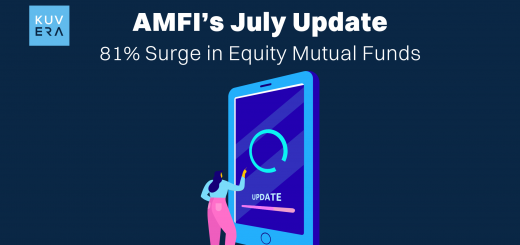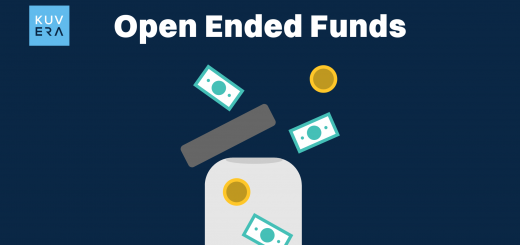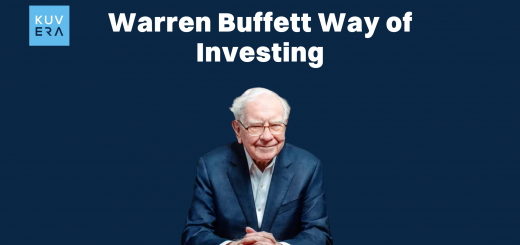Let us look at the dream that needed a plan!
Priya, a 28-year-old marketing professional from Mumbai, had always dreamt of traveling the world. She envisioned herself wandering through the streets of Paris, hiking in Patagonia, diving in Bali, and experiencing the rich culture of Japan. However, every time she checked her savings, reality struck—her dream seemed financially out of reach.
That’s when she realised she needed a proper Financial Goal Planning Strategy, not just wishful thinking. Instead of waiting for a miracle, she decided to take control of her finances and use Mutual Funds to systematically build her travel fund.
Step 1: Defining the Goal and the Power of Compounding
Priya calculated that she would need around ₹12 lakh in five years to comfortably fund her multi-country travel adventure. Instead of saving money in a traditional savings account, she explored Kuvera, a platform known for its zero-commission mutual fund investments, advanced tools, and goal-based planning features.
Applying the Principle of Compounding
One of the first things Priya applied was the Power of Compounding; the idea that her investments could grow exponentially over time if she reinvested her returns. With a well-planned SIP (Systematic Investment Plan), she wouldn’t just save but grow her money faster.
Using Kuvera’s goal calculator, she saw that investing ₹20,000 per month in the right mix of funds with an expected 10-12% annual return could help her reach her goal within five years.
“Instead of saving what’s left after spending, I’ll invest first and spend what’s left!”, Priya reminded herself, adopting the Principle of Pay Yourself First.
Step 2: Understanding Risk
Before jumping into investments, Priya does her Risk Profiling with Kuvera, a powerful feature that helped her understand how much risk she could take. She analysed her:
✅Investment Horizon (5 years, so moderate risk was possible)
✅Financial Stability (steady job, so she could take calculated risks)
✅Risk Appetite (willing to accept some volatility but wanted balance)
✅Emotional Response to Market Fluctuations (comfortable with short-term dips for long-term growth)
The assessment categorised her as Moderately Aggressive, which meant she could invest a significant portion in equities but should also balance it with stable hybrid and debt funds.
Investment Principle: Asset Allocation is Key
Kuvera also explained the principle of Asset Allocation, which says that the right mix of investments reduces risk and enhances returns. Based on this, Priya chose a diversified investment strategy.
Step 3: Building the Right Portfolio with Kuvera’s Smart Investment Tools
Priya structured her SIP investments into three categories:
1. Equity Mutual Funds for Growth (₹12,000/month – 60%)
Since equities tend to generate higher long-term returns, she allocated 60% of her SIPs here. She selected:
✔ Axis Bluechip Fund – A large-cap fund for stability and steady growth
✔ Mirae Asset Emerging Bluechip Fund – A mid-cap fund with high-growth potential
✔ Parag Parikh Flexi Cap Fund – A diversified fund with global exposure
📌 Why? These funds could potentially deliver 10-14% annualized returns over five years.
2. Hybrid Funds for Stability (₹6,000/month, ~30%)
To reduce volatility, Priya allocated 30% to balanced funds:
✔HDFC Hybrid Equity Fund – A mix of equities and debt for lower-risk
✔ ICICI Prudential Equity & Debt Fund – A defensive option in case of market downturns
📌 Why? Hybrid funds provide better downside protection while still offering growth.
3. Debt Funds for Security (₹2,000/month, ~10%)
For added stability and liquidity, she invested in:
✔ HDFC Corporate Bond Fund – For steady returns with lower risk
✔ Axis Treasury Advantage Fund – A safe, liquid option in case she needed emergency cash
📌 Why? Debt funds offer lower but stable returns, ensuring that not all her money was exposed to market risks.
Step 4: Automating and Tracking Progress with Kuvera
To stay disciplined, Priya automated her SIPs using Kuvera. The platform’s dashboard allowed her to:
✅Track Portfolio Growth – View real-time progress toward her ₹12 lakh goal
✅Rebalance Investments – Adjust allocation if markets change significantly
✅Use Tax Harvesting – Reduce tax liability by optimising investments
✅ Stay Emotionally Disciplined – Kuvera’s AI-based insights helped her avoid panic-selling
Step 5: Reaching the Destination – Both Financially and Literally!
After four and a half years, Priya checked her Kuvera dashboard and saw that her portfolio had grown beyond ₹12 lakh—a combination of disciplined SIPs, compounding, and strategic asset allocation.
She finally booked her flights and embarked on her dream journey. As she walked through the streets of Paris and explored Machu Picchu, she felt an immense sense of gratitude. Not just for the places she was visiting, but for the financial discipline that made it all possible.
“Money isn’t just for spending—it’s for achieving dreams.”
Key Takeaways from Priya’s Story
💡 Start Early, Compounding Will Work Wonders
💡 Pay Yourself First – Invest Before Spending
💡 Use a Risk Profiling Tool for Smart Investment Decisions
💡 Diversify Across Equity, Hybrid, and Debt Funds
💡 Stay Invested and Avoid Emotional Market Reactions
💡 Leverage Kuvera’s Goal Tracking and Auto-SIP Features
Wrapping Up
Through strategic financial goal planning and mutual fund investments, Priya was able to turn her travel dreams into reality. Using Kuvera, she was able to assess her risk and plan, select suitable mutual fund options, and maintain consistency with SIPs to achieve her travel goals. She ensured a balance of risk and returns while staying on track, by diversifying her investments across different fund types,
Our final thought on this is “Your Dreams Are Achievable!”
Like Priya, anyone with a financial goal, whether it is traveling, buying a house, or early retirement, can achieve it with the right mutual fund investments, goal planning, and discipline. Platforms like Kuvera make this journey easier with their zero-commission investments, advanced risk tools, and intuitive tracking.
Interested in how we think about the markets?
Read more: Zen And The Art Of Investing
Watch here: Rebalancing for Mutual Fund Investors












